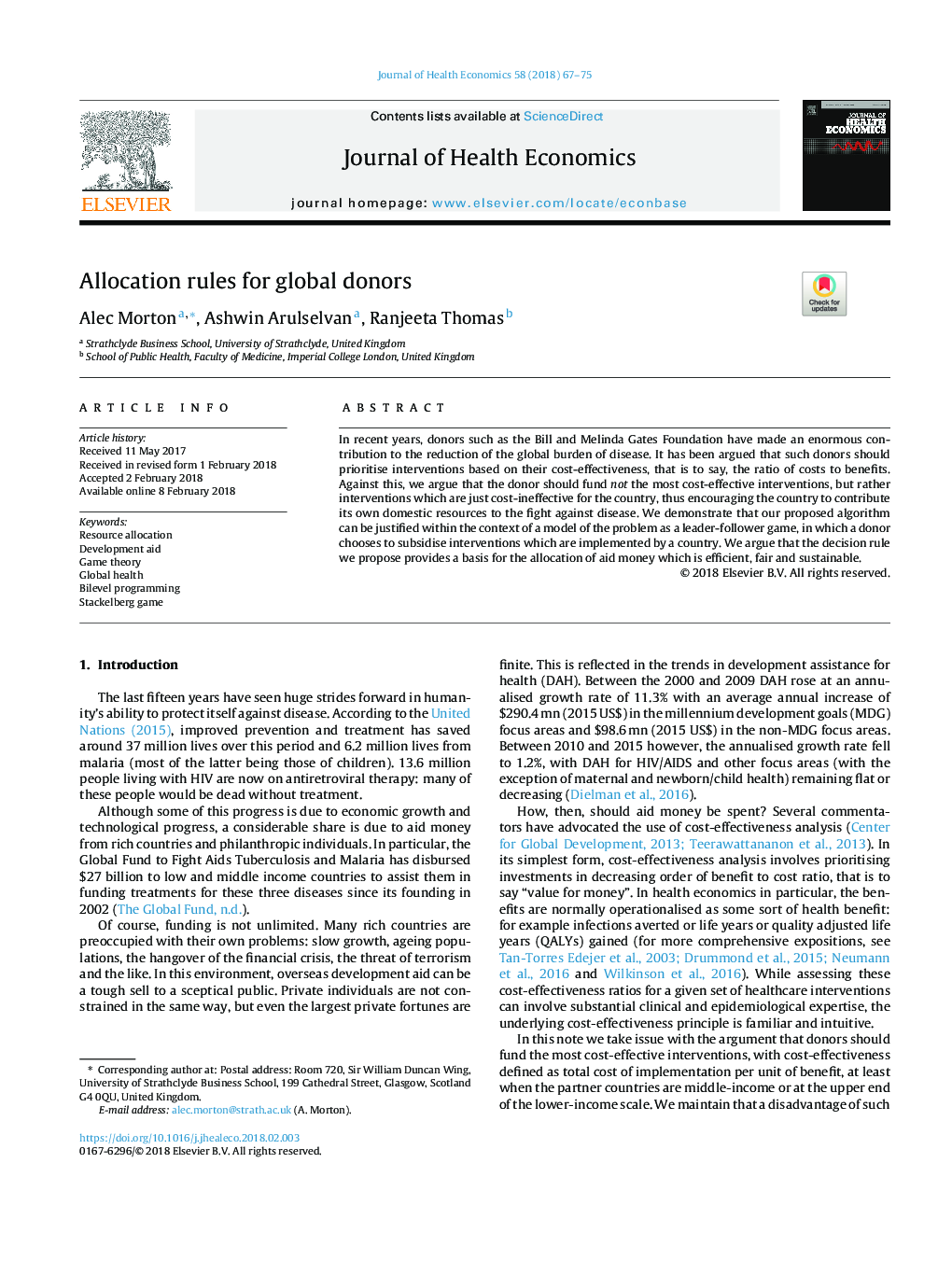| Article ID | Journal | Published Year | Pages | File Type |
|---|---|---|---|---|
| 7362831 | Journal of Health Economics | 2018 | 9 Pages |
Abstract
In recent years, donors such as the Bill and Melinda Gates Foundation have made an enormous contribution to the reduction of the global burden of disease. It has been argued that such donors should prioritise interventions based on their cost-effectiveness, that is to say, the ratio of costs to benefits. Against this, we argue that the donor should fund not the most cost-effective interventions, but rather interventions which are just cost-ineffective for the country, thus encouraging the country to contribute its own domestic resources to the fight against disease. We demonstrate that our proposed algorithm can be justified within the context of a model of the problem as a leader-follower game, in which a donor chooses to subsidise interventions which are implemented by a country. We argue that the decision rule we propose provides a basis for the allocation of aid money which is efficient, fair and sustainable.
Keywords
Related Topics
Health Sciences
Medicine and Dentistry
Public Health and Health Policy
Authors
Alec Morton, Ashwin Arulselvan, Ranjeeta Thomas,
